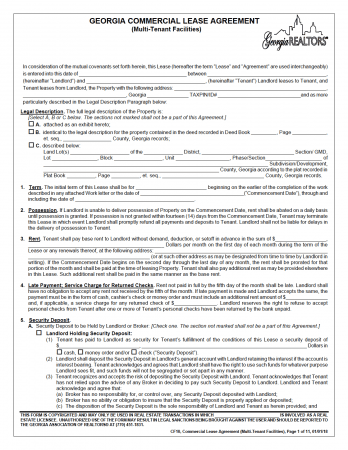
The Georgia Lease Agreements allow landlords to set binding conditions that tenant(s) leasing their property are required to follow. Each agreement has unique characteristics that allow them to be useful for specific scenarios, such as the leasing of property for business purposes, leasing property that can be purchased by the tenants, and more. Although each form is different in its own right, they all cover major topics such as the cost of rent, utilities, guests, pets, default, eviction, and term.

Commercial Lease Agreement (Form CF10) – Solely for use by landlords and property owners that are looking to lease their property to business-owning tenants.
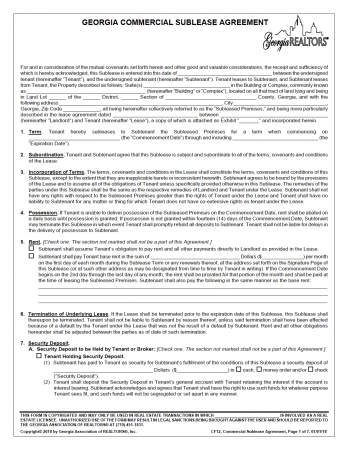
Commercial Sublease Agreement (Form CF12) – A form for use by business-owning tenants to lease a currently rented space or building to another business.
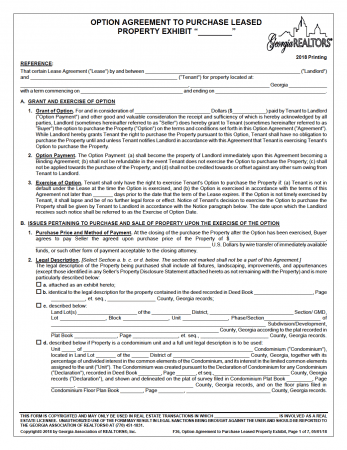
Lease to Own Agreement (Form F36) – A form that serves as two (2) forms in one – allowing a property to be leased normally, with the added condition that the tenant(s) can choose to purchase the property at the end of the lease.
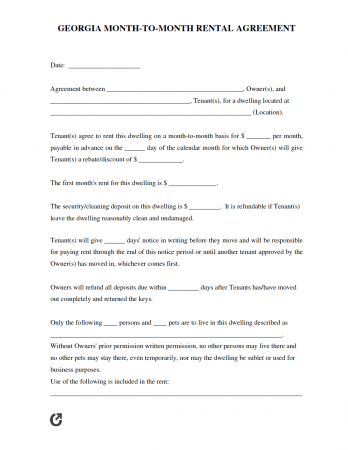
Month-to-Month Rental Agreement – Used for renting out property on a monthly basis. Either party can terminate the agreement with minimal notice.
Rental Application (Form F44) – For screening tenant-candidates prior to signing a written lease agreement.
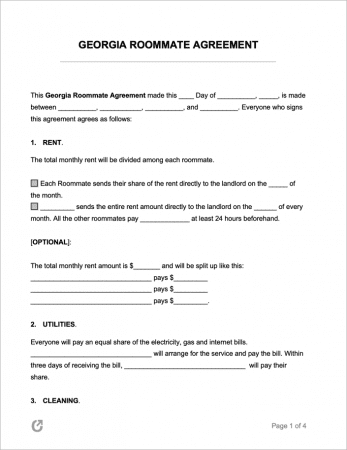
Roommate Agreement – Used for helping to establish positive relations among members of a shared rental unit.
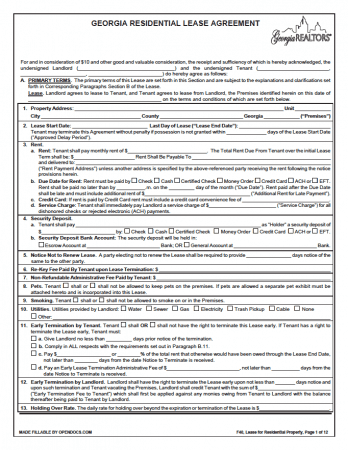
Standard Residential Lease Agreement (Form F40) – The most commonly used lease-type; reflects landlord and tenant legal obligations as set out by Georgia state law.
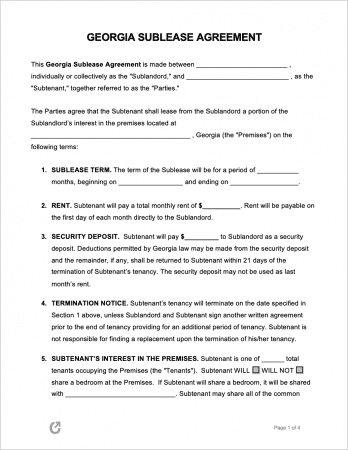
Sublease Agreement – A legally-binding contract signed between a sublandlord (original tenant to a property) and a subtenant (new tenant) that allows the subtenant to live in the property instead of the sublandlord.
Property Disclosure Form (§ 44-7-33): Before accepting the tenant’s security deposit, landlords must present tenants with a detailed list of any existing damage to the premises.
Flooding Disclosure – by eForms (§ 44-7-20): Landlords must disclose the property’s propensity for flooding if the living space has flooded three or more times during the previous five (5) year period.
Lead Paint Disclosure: Landlords of properties built before 1978 must inform tenants of any known lead paint hazards, and also provide them with this pamphlet regarding the matter.
Names and Addresses (§ 44-7-3): At or before the tenancy begins, the names and addresses of the landlord or person who acts on their behalf must be disclosed in writing.
Previous Tenant Issues (§ 44-1-16): The landlord shall inform the tenant (when asked) if a previous tenant of the property was infected with a virus or any other disease that can be transmitted through occupancy of the property. Additionally, they must also disclose if the property was ever the site of a homicide, felony, suicide, or death by accidental or natural causes.
A Georgia Lease Agreement is a document used to clearly indicate the legal obligations a tenant must uphold when leasing a property, as well as those of the landlord who owns the property. As a means of vetting tenants before entering into this legally-binding relationship, it is useful for landlords to have tenants fill out a rental application.
Landlord-Tenant Guides / Handbooks